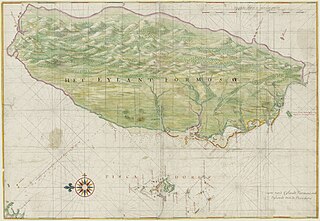
The Democratic Progressive Party (DPP) is a Taiwanese nationalist and liberal political party in Taiwan. Controlling both the Taiwan Presidency and the unicameral Legislative Yuan, it is the majority ruling party and the dominant party in the Pan-Green Coalition.

The politics of the Republic of China take place in a framework of a representative democratic republic, whereby the President is head of state and the Premier is head of government, and of a multi-party system. Executive power is exercised by the government. Legislative power is vested in primarily with the parliament and limited by government. The Judiciary is independent of the executive and the legislature. The party system is dominated by the Kuomintang, which favors closer links to mainland China, and the Democratic Progressive Party, which favors Taiwanese independence.

Chen Shui-bian is a retired Taiwanese politician and lawyer who served as President of the Republic of China (Taiwan) from 2000 to 2008. Chen is the first president from the Democratic Progressive Party (DPP) which ended the Kuomintang's (KMT) 55 years of continuous rule in Taiwan. He is colloquially referred to as A-Bian.

The Kaohsiung Incident, also known as the Formosa Incident, the Meilidao Incident, or the Formosa Magazine incident, was a crackdown on pro-democracy demonstrations that occurred in Kaohsiung, Taiwan, on 10 December 1979 during Taiwan's martial law period.

Annette Lu Hsiu-lien is a Taiwanese politician. A feminist active in the tangwai movement, she joined the Democratic Progressive Party in 1990, and was elected to the Legislative Yuan in 1992. Subsequently, she served as Taoyuan County Magistrate between 1997 and 2000, and was the Vice President of the Republic of China from 2000 to 2008, under President Chen Shui-bian. Lu announced her intentions to run for the presidency on 6 March 2007, but withdrew to support eventual DPP nominee Frank Hsieh. Lu ran again in 2012, but withdrew for a second time, ceding the nomination to DPP chairwoman Tsai Ing-wen. She lost the party's Taipei mayoral nomination to Pasuya Yao in 2018, and stated that she would leave the party. However, by the time Lu announced in September 2019 that she would contest the 2020 presidential election on behalf of the Formosa Alliance, she was still a member of the Democratic Progressive Party.

Shih Ming-teh commonly known as Nori Shih, is a political activist in Taiwan and was once a political prisoner for 25-and-a-half years.

As a result of the surrender of Japan at the end of World War II, the island of Taiwan was placed under the governance of the Republic of China (ROC), ruled by the Kuomintang (KMT), on 25 October 1945. Following the February 28 massacre in 1947, martial law was declared in 1949 by the Governor of Taiwan Province, Chen Cheng, and the ROC Ministry of National Defense. Following the Chinese Civil War in 1949, the ROC government retreated from the mainland as the Communists proclaimed the establishment of the People's Republic of China. The KMT retreated to Taiwan and declared Taipei the temporary capital of the ROC. For many years, the ROC and PRC each continued to claim in the diplomatic arena to be the sole legitimate government of "China". In 1971, the United Nations expelled the ROC and replaced it with the PRC.
The China Times is a daily Chinese newspaper published in Taiwan. It is one of the four largest newspapers in Taiwan, along with the Liberty Times, Apple Daily and United Daily News.
The "1992 Consensus", also known as the "Consensus of 1992" or the "One China" Consensus, is a political term coined by Kuomintang (KMT) politician Su Chi, referring to the outcome of a meeting in 1992 between the semiofficial representatives of the People's Republic of China (PRC) of mainland China and the Republic of China (ROC) of Taiwan.

The 12th President and Vice President election of the Republic of China was held on 22 March 2008. Kuomintang (KMT) nominee Ma Ying-jeou won with 58% of the vote, ending eight years of Democratic Progressive Party (DPP) rule. Along with the 2008 legislative election, Ma's landslide victory brought the Kuomintang back to power in Taiwan.
Censorship in Taiwan was greatly relaxed when the state moved away from authoritarianism in 1987. Since then, the media has generally been allowed to broadcast political opposition. Today, the focus of censorship is slander and libel, cross-Strait relations, and national security.

Taiwanese nationalism is an ideology that promotes the interests of residents of the Taiwan Area. Due to the political status of Taiwan, it is rooted in and overlaps with Taiwanese localism, the promotion and emphasis of Taiwanese culture, society, and identity within the Republic of China. This involves the education of history, geography, and culture from a Taiwan-centric perspective, promoting native languages of Taiwan such as Taiwanese Hokkien, Hakka, and indigenous languages, as well as reforms in other aspects.

Tsai Ing-wen is a Taiwanese politician and academic serving as the president of the Republic of China, commonly known as Taiwan, since 20 May 2016. The first woman to be elected to the office, Tsai is the seventh president of the Republic of China under the 1947 Constitution and the second president from the Democratic Progressive Party (DPP); part of Taiwan's Pan-Green Coalition. She is also the first president to be of both Hakka and aboriginal descent, the first unmarried president, the first to have never held an elected executive post before presidency and the first to be popularly elected without having previously served as the Mayor of Taipei. She was the Democratic Progressive Party candidate in the 2012 and 2016 presidential elections. Tsai previously served as party chair from 2008 to 2012, and from 2014 to 2018. She was re-elected for a second term on 11 January 2020 after emerging victorious in the presidential election.

Million Voices against Corruption, President Chen Must Go (百萬人民反貪腐倒扁運動) was a Taiwanese mass campaign led by former Democratic Progressive Party Chairperson Shih Ming-teh to pressure the Taiwanese President Chen Shui-bian to resign in 2006.

The Broadcasting Corporation of China is a broadcasting company in the Republic of China. It was founded as the Central Broadcasting System in Nanjing in 1928.

The renaming of the Chiang Kai-shek Memorial Hall in Taipei, Taiwan to National Taiwan Democracy Memorial Hall was announced by President Chen Shui-bian on 15 May 2007. The surrounding plaza was rededicated to democracy as Liberty Square. This move was condemned by the pan-blue media as a political move by the Democratic Progressive Party to denounce the historical heritage of the Republic of China. The site has now been restored back to the original title of the "Chiang Kai-shek Memorial Hall" as of 20 July 2009 with the Nationalists back in power.

Eric Chu Li-luan is a Taiwanese politician. He was born into a political family with strong Kuomintang (KMT) ties, and served as Vice Premier of the Republic of China, under Premier Wu Den-yih. Prior to this, Chu served as legislator and as the magistrate of Taoyuan County. He was elected as the first mayor of the newly established city of New Taipei on 27 November 2010. On 17 January 2015, he was elected unopposed as Chairman of the Kuomintang, succeeding Ma Ying-jeou. On 17 October 2015, he was chosen as KMT candidate for the 2016 presidential election replacing incumbent candidate Hung Hsiu-chu. Chu was defeated by his opponent Tsai Ing-wen, and subsequently resigned his post as KMT chairman. He was succeeded as mayor of New Taipei by Hou You-yi in 2018.
General elections were held in Taiwan, officially the Republic of China, on Saturday, 16 January 2016 to elect the 14th President and Vice President of the Republic of China, and all 113 members of the ninth Legislative Yuan:
Fei Hsi-ping was a Chinese-born politician who served in the Legislative Yuan from 1948 to 1990.
The Anti-infiltration Act is a law regulating the influence of entities deemed foreign hostile forces on the political processes of the Republic of China, including elections and referendums. The act was passed by the Legislative Yuan on 31 December 2019 and promulgated by the Tsai Ing-wen presidential administration on 15 January 2020.













